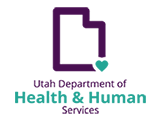Health Indicator Report of Prenatal Care
Women who receive early and consistent prenatal care (PNC) enhance their likelihood of giving birth to a healthy child. Health care providers recommend that women begin prenatal care in the first trimester of their pregnancy.
Prenatal care in the first trimester of pregnancy by race, Utah, 2022
Notes
Percentage of mothers of live born infants where prenatal care was reported to have been received in the first trimester (births where prenatal care was unreported were counted in the denominator).Data Source
Utah Birth Certificate Database, Office of Vital Records and Statistics, Utah Department of Health and Human ServicesData Interpretation Issues
Utah prenatal care reporting is not comparable to the U.S. between the 1989 and 2003 revisions of the birth certificate due to wording and format changes. Utah adopted the 2003 U.S. revision to the birth certificate in 2009. The U.S. began reporting U.S. rates of first trimester prenatal care in 2016.Definition
Number of infants born to pregnant women receiving prenatal care in the first trimester as a percentage of the total number of live births.Numerator
Number of infants born to pregnant women receiving prenatal care in the first trimester.Denominator
Number of live births.Other Objectives
Healthy People 2030 has an objective of Increasing the proportion of pregnant women who receive early and adequate prenatal care--MICH-08 with a baseline of 76.4% (2018) and a goal of 80.5%.How Are We Doing?
The percentage of women entering prenatal care in the first trimester of pregnancy increased to 77.1% in 2021, the highest reported since 2009, then decreased to 72.8% in 2022.How Do We Compare With the U.S.?
The National Center for Health Statistics began reporting U.S. rates of first trimester prenatal care in 2016. Among women giving birth in the U.S. in 2021, 78.3% began prenatal care in the first trimester of pregnancy, compared to 77.1% in 2021 in Utah.What Is Being Done?
The Utah Department of Health and Human Services Baby Your Baby Program sponsors a statewide media campaign and provides information and referral services to pregnant women in Utah. MotherToBaby (formerly Pregnancy Risk Line) is a phone service available to pregnant women, the public, and health care providers who have questions about possible effects of medications, chemicals, or infectious agents on a developing baby or breastfed infant. MotherToBaby can be reached by both phone calls or text messaging. The Pregnancy Risk Assessment Monitoring System (PRAMS) collects and analyzes data to identify characteristics of Utah women and their utilization of prenatal care. The Maternal and Infant Health Program will utilize these data to target interventions in those populations identified as having poor first trimester entry.Available Services
'''Baby Your Baby:''' 1-800-826-9662[[br]] [http://www.babyyourbaby.org][[br]] A public resource to answer pregnancy related questions and and locate services. '''MotherToBaby:''' Phone - 1-800-822-2229[[br]] Text - 1-855-999-3525[[br]] Email - expertinfo@mothertobaby.org[[br]] A service to answer questions about what's safe during pregnancy and breastfeeding.[[br]] [[br]] Social media for MotherToBaby include: *Facebook: [http://www.facebook.com/MotherToBaby] *Twitter: @MotherToBaby *Pinterest: [http://www.pinterest.com/MotherToBaby]Health Program Information
Early entry into prenatal care for women with limited financial resources is facilitated by the Division of Integrated Healthcare's Presumptive Eligibility for Prenatal Medicaid Program - also known as the Baby Your Baby Program. Applicants are screened via a brief application and those meeting the program's eligibility requirements are able to receive a medical card that will provide temporary coverage in order to allow them to begin prenatal care from any willing Medicaid provider in Utah. During the time the woman has temporary coverage, she completes the Medicaid Application. The Baby Your Baby Program acts as a bridge into Prenatal Medicaid and allows women to start their prenatal care in a timely manner.
Page Content Updated On 03/28/2024,
Published on 04/02/2024
